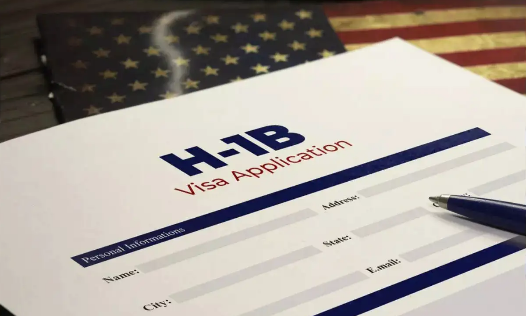Payment is being processed. Please do not refresh or close this page until your payment is complete.
 Book an Appointment
Book an Appointment

USCIS Completes Initial Selection for FY 2026 H-1B Cap
The U.S. Citizenship and Immigration Services (USCIS) has officially completed the initial selection process for H-1B visa registrations for the fiscal year (FY) 2026, including those under the advanced degree exemption (commonly known as the master’s cap).
What Does This Mean?
• Sufficient Registrations Received:
USCIS confirmed it received enough electronic registrations during the initial registration period (held in March 2025) to meet the numerical limit (cap) for:
o Regular H-1B cap (65,000 visas)
o Advanced degree exemption (20,000 visas for U.S. master’s or higher degree holders)
• Random Selection Completed:
Since the number of registrations exceeded the available visas, USCIS used a lottery system to randomly select eligible beneficiaries.
• Notification Sent:
All employers (petitioners) whose registrations were selected have been notified through their USCIS online accounts. These employers are now allowed to proceed with filing full H-1B petitions.
What Happens Next?
• Filing Period Begins April 1, 2025:
Employers whose registrations were selected in the lottery can begin filing complete H-1B cap-subject petitions starting from April 1, 2025.
• Filing Requirements:
o Only employers with a selected registration can file.
o Petitions must be for the specific individual (beneficiary) selected during registration.
o Petitions must include all required documentation, such as labor condition application (LCA) and proof of qualifications.
Key Terms Explained:
• H-1B Visa: A non-immigrant visa that allows U.S. employers to hire foreign workers in specialty occupations requiring theoretical or technical expertise.
• Cap-Subject: Refers to petitions subject to the annual numerical limit.
• Advanced Degree Exemption: A special allocation of 20,000 H-1B visas reserved for individuals who have earned a U.S. master's degree or higher.
Why It Matters:
• The H-1B visa is highly competitive, and selection through the lottery system is often the only path forward for skilled foreign workers seeking to live and work in the U.S.
• Employers must act quickly after being selected, as delays or errors in filing can result in the petition being rejected—even after selection.